Two professors and 11 associate professors have been honored with an additional title: Chancellor’s Fellow.
“Our newest fellows represent the very best of UC Davis and I congratulate them,” Chancellor Gary S. May said in announcing the new fellows. “The knowledge, expertise and excellence these faculty demonstrate across a range of disciplines positively impacts our university’s mission of research, teaching and public service.”
Each fellow receives $25,000 in unrestricted funds for their research or other scholarly work. UC Davis has named 191 faculty members as Chancellor’s Fellows over the program’s 23-year history, with philanthropic support from the UC Davis Annual Fund, Davis Chancellor’s Club and the UC Davis Parents Fund.
“This is a great example of the power of philanthropy, allowing us to recognize our faculty and provide support for their work,” said Shaun Keister, vice chancellor for Development and Alumni Relations.
Phil Kass, vice provost of Academic Affairs, noted that Chancellor’s Fellows retain their new title for five years. “But we see them making a brilliant impact on UC Davis for many years beyond that,” he said.
The 2022-23 Chancellor’s Fellows are listed here with their department or school in parentheses: Jessica Bissett Perea (Native American studies), Marcela Cuellar (education), Melanie Gareau (veterinary medicine), J. Sebastian Gómez-Díaz (electrical and computer engineering), Rana Jaleel (gender, sexuality and women’s studies), Wilsaan Joiner (neurobiology, physiology and behavior), Xiaodong Li (statistics), David Olson (chemistry), Caitlin Patler (sociology), Zubair Shafiq (computer science), Aaron Tang (law), Karen Shapiro (veterinary medicine) and Rachel Vannette (entomology and nematology).
A brief description of each fellow’s work can be found below, each accompanied by a nominator’s quote. Click on any of the boxes to see the fellow’s faculty page.
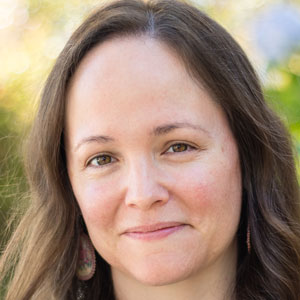
Jessica Bissett Perea
Associate professor, Department of Native American Studies, College of Letters and Science
An interdisciplinary musician-scholar whose research is Indigenous-centered, she is the author of Sound Relations: Native Ways of Doing Music History in Alaska (Oxford University Press, 2021). She is a member of the Knik Tribe, raised on Dena’ina homelands in Alaska. Among her recent grants and fellowships are “Improvising Futures,” Social Science and Humanities Council of Canada, and “Racial Radical Storywork: Performing Relational Approaches to Inuit Food Fermentation and Food Security.”
“An immensely dedicated trans- and interdisciplinary scholar who seamlessly engages the fields of music, Native American and Indigenous studies, cultural studies and critical ethnic studies, Professor Bisset Perea has published a monograph and several peer-reviewed articles and book chapters in sound studies across these fields.” — Estella Atekwana, dean, College of Letters and Science
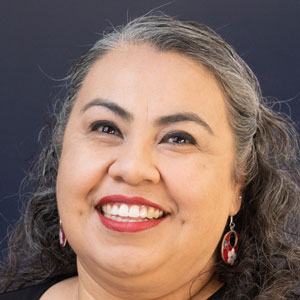
Marcela Cuellar
Associate professor, School of Education
She has established herself as a preeminent scholar of Hispanic-Serving Institutions, or HSIs, and her research into access and equity in higher education, HSIs and Latinx student success is offering new conceptualizations regarding the educational landscape for Latinx students and other marginalized groups. Her impactful work directly informs policy and practice, as evidenced by the multiple ways in which her expertise has been tapped by HSI initiatives at UC Davis and throughout the UC system.
“Dr. Cuellar works tirelessly to make UC Davis a place where Latin* students can thrive, explore the forces that shape higher education, and imagine ways they can contribute to changing the system to make it more inclusive and equitable.” — Rebecca Ambrose, professor and department chair, School of Education
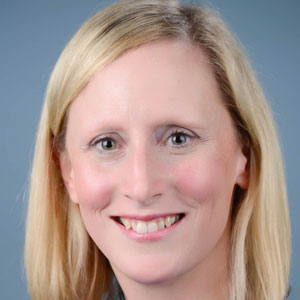
Melanie Gareau
Associate professor, Department of Anatomy, Physiology and Cell Biology, School of Veterinary Medicine
She is known for her research in understanding how changes in gut microbes impact the brain and behavior, including anxiety, depression and memory. She investigates how microbes are dysregulated in diseases such as inflammatory bowel disease, bacterial infection and autism. She also examines potential therapies to ameliorate these changes.
“Her work has contributed importantly to the concept that modulating the gut microbiome with agents like probiotics can alter brain functions and behavior. This idea has become part of the mainstream now, but that would not have happened were it not for discoveries such as those of Dr. Gareau.” — Keith Sharkey, professor, Department of Physiology and Pharmacology, Cumming School of Medicine, University of Calgary
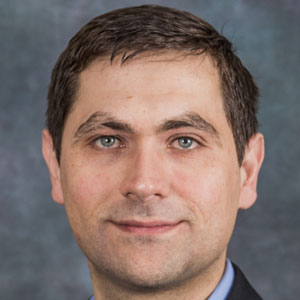
J. Sebastian Gómez-Díaz
Associate professor, Department of Electrical and Computer Engineering, College of Engineering
He works on applied electromagnetics and metamaterials, including new types of devices that can emit, process and detect microwaves, infrared or X-rays. His work has a wide range of potential applications, from electronics and communications to medical technology. His laboratory uses numerical modeling and simulations, as well as fabricating and testing experimental devices.
“Overall, the research record of Professor Gómez-Díaz is extraordinary.” — Andre Knoesen, distinguished professor and chair, Department of Electrical and Computer Engineering
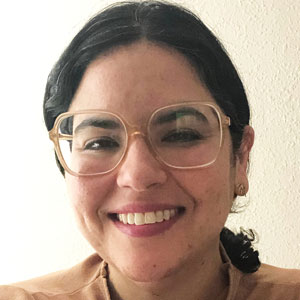
Rana Jaleel
Associate professor, Department of Gender, Sexuality and Women’s Studies, College of Letters and Science
Her work examines the politics of evidence: how concepts like reproductive labor, sex/gender, race, property and sexuality are sustained or transformed through the recognition, narration and redress of harm. Her first book, The Work of Rape (Duke University Press, 2021), received the Author of Color First Book Award from Duke University Press. The book explores how the 1990s’ redefinition of sexual violence in international law — the prosecution of sexual violence as a war crime, crime against humanity, and genocide — owes a disturbing and unacknowledged debt to power and knowledge achieved from racial, imperial and settler colonial domination.
“A true Renaissance scholar, Professor Jaleel has three terminal degrees (Ph.D. in American studies, M.F.A. and J.D.) and publications across the interdisciplinary critical humanities, law and creative writing. ... The depth and breadth of her scholarship, along with her commitment to service and teaching, make her an asset to UC Davis.” — Estella Atekwana, dean, College of Letters and Science
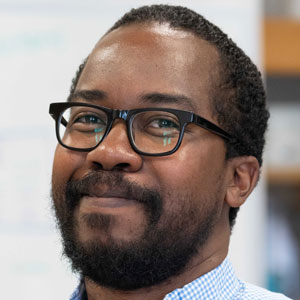
Wilsaan Joiner
Professor, Department of Neurobiology, Physiology and Behavior, College of Biological Sciences
He studies the interactions between vision, limb movements and learning. His work uses both biological and engineering approaches. It includes both basic studies using arm movement as a model system, and work that can be translated to patients with neurological and behavioral disorders as well as to development of prosthetic limbs. He is also studying how modifying limb movements affects perception of time.
“He has established a productive and vibrant research program at UC Davis and is recognized as a leader and star in his field.” — Mark Winey, dean, College of Biological Sciences
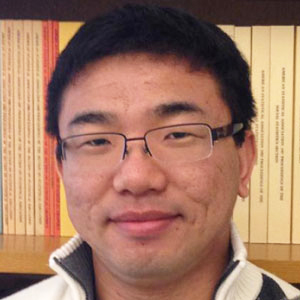
Xiaodong Li
Associate professor, Department of Statistics, College of Letters and Science
The recipient of a prestigious CAREER award from the National Science Foundation, he is a foremost expert in methods and theory for high-dimensional statistics, theoretical machine learning and optimization, and has investigated statistical methods for unsupervised learning, a type of machine learning technique for finding patterns in large, complicated datasets. Unsupervised learning is widely used in online applications such as searches, recommendations and advertising, as well as managing complex networks such as power grids.
“His research is of outstanding quality and his areas of research are distinguished by the depth of their theoretical as well as computational challenges. Professor Li’s contributions produce a novel and top-notch methodology that finds its way into applications in other fields almost instantaneously.” — Estella Atekwana, dean, College of Letters and Science
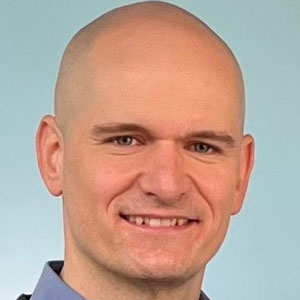
David Olson
Associate professor, Department of Chemistry, College of Letters and Science
Operating at the interface of chemistry and neuroscience, he studies a class of compounds called psychoplastogens, which are small molecules capable of promoting neural plasticity. Such compounds have enormous potential for treating a wide variety of neuropsychiatric diseases, including depression, anxiety disorders and addiction. He is the founding director of UC Davis’ newly launched Institute for Psychedelics and Neurotherapeutics.
“Professor Olson is a trailblazer at the intersection of several scientific fields, who is establishing himself as a leader in the area of neuropsychiatric disease drug discovery.” — Estella Atekwana, dean, College of Letters and Science
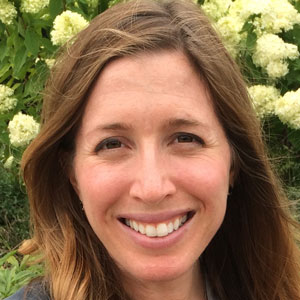
Caitlin Patler
Associate professor, Department of Sociology, College of Letters and Science
In studying the origins and reproduction of inequality in the U.S., she gathers data on hard-to-reach populations — undocumented immigrants and incarcerated immigrants — thereby expanding the boundaries of sociology, influencing economics, health science and other disciplines, and benefiting the public good. Her work has been cited in Supreme Court and other federal cases, and she has served as an expert for policymakers and immigrant justice organizations. She is a co-founder of the Global Migration Center and the recipient of a 2021 Distinguished Teaching Award for Undergraduate Teaching from the Academic Senate, who involves dozens of undergraduates in her research projects.
“Caitlin Patler is the kind of faculty member who makes her colleagues and students proud to be Aggies. She produces top-rate scholarship … master teacher … a public intellectual. In these ways and more, Caitlin demonstrates her relentless, resolute commitment to improving the lives of others through her work.” — Erin Hamilton, professor, and Jacob Hibel, associate professor, Department of Sociology
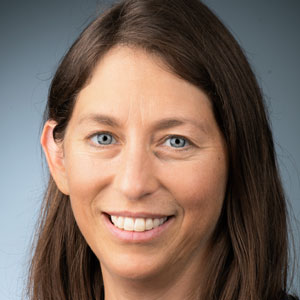
Karen Shapiro
Associate professor, Department of Pathology, Microbiology, and Immunology, School of Veterinary Medicine
She is a veterinary microbiologist who focuses on protozoan parasites that have the potential to transmit disease between animals and humans. She is known for her research that showed cat feces shedding the parasite Toxoplasma gondii were killing southern sea otters in California. Her research also found that microplastics can carry land-based pathogens to the ocean, affecting wildlife and human health.
“Dr. Shapiro’s research is informing our future: Her focus on water as a vital medium through which animals and humans interact with each other and with the environment has critical implications for policy development, natural resource management and disease prevention.” — John Pascoe, executive associate dean, School of Veterinary Medicine
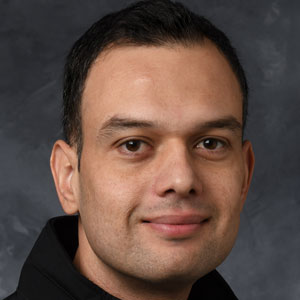
Zubair Shafiq
Associate professor, Department of Computer Science, College of Engineering
He works at the intersection of artificial intelligence, security and privacy. His work addresses online privacy in networked systems: the internet as well as the mobile apps and smart devices that are connected through it. He has studied both “defensive privacy,” showing how users’ online behavior is tracked and how to block this online surveillance; and “offensive privacy,” developing machine learning systems that can actively interfere with online surveillance. His work has also shown how recommendation algorithms in social media can drive users to increasingly problematic content.
“His research has clear societal impact and implications for individual internet users, policymaking, internet companies, social media platform, and, consequently, society at large.” — Magdalena Wojcieszak, professor, Department of Communication, College of Letters and Science
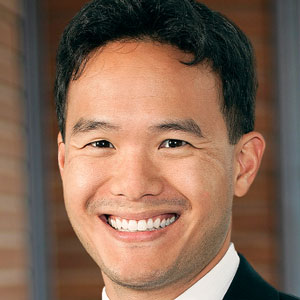
Aaron Tang
Professor, School of Law
A former law clerk for U.S. Supreme Court Associate Justice Sonia Sotomayor and one of the most innovative thinkers among the nation’s constitutional law scholars, he provides immediate responses to key Supreme Court decisions, writing expertly analytical yet accessible essays for The New York Times, Washington Post, Los Angeles Times and other top media outlets. He is a past winner of the Association of American Law Schools’ Scholarly Paper Competition. His book Supreme Hubris: How Overconfidence Is Destroying the Court — and How We Can Fix It is expected later this year.
“Because the Supreme Court frequently decides high-stakes cases involving the rights of disadvantaged and marginalized groups, his writing seeks to ensure these groups have ways to avoid their harms.” — Kevin R. Johnson, dean, School of Law
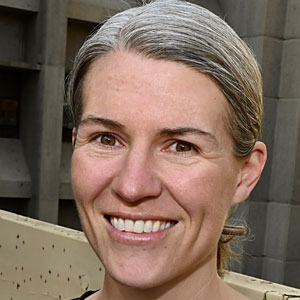
Rachel Vannette
Associate professor, Department of Entomology and Nematology, College of Agricultural and Biological Sciences
An international leader in microbial ecology, she studies interactions between plants, insects and microbes. Her research projects focus on the chemical and microbial ecology of plant-pollinator interactions and how microbes influence plant defense and resistance against insect pests. For example, her research found that microbial species on plants contribute to floral scent and influence the attractiveness of nectar to pollinators.
“It is no exaggeration to say that Dr. Vannette is a rising star in the biological and agricultural sciences at UC Davis.” — Helene R. Dillard, dean, College of Agricultural and Environmental Sciences
Media Resources
Dateline Staff: Dave Jones, editor, 530-752-6556, dateline@ucdavis.edu; Cody Kitaura, News and Media Relations specialist, 530-752-1932, kitaura@ucdavis.edu.